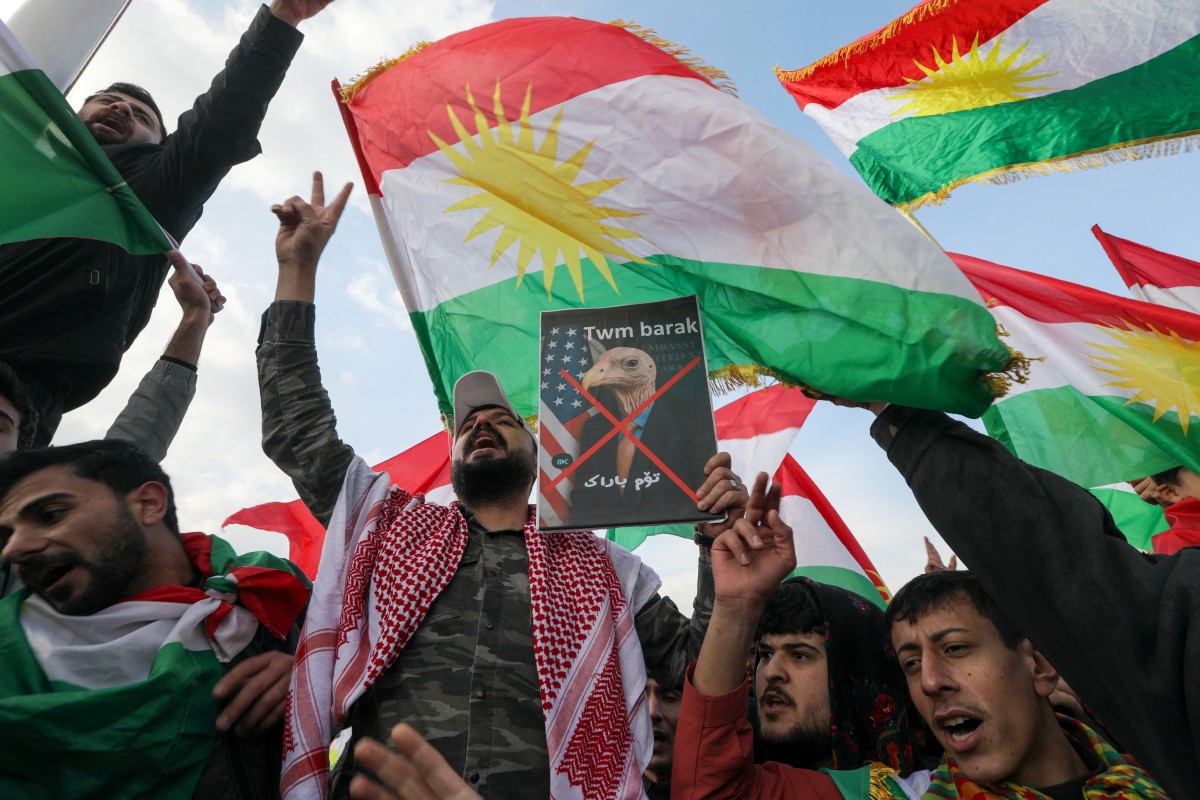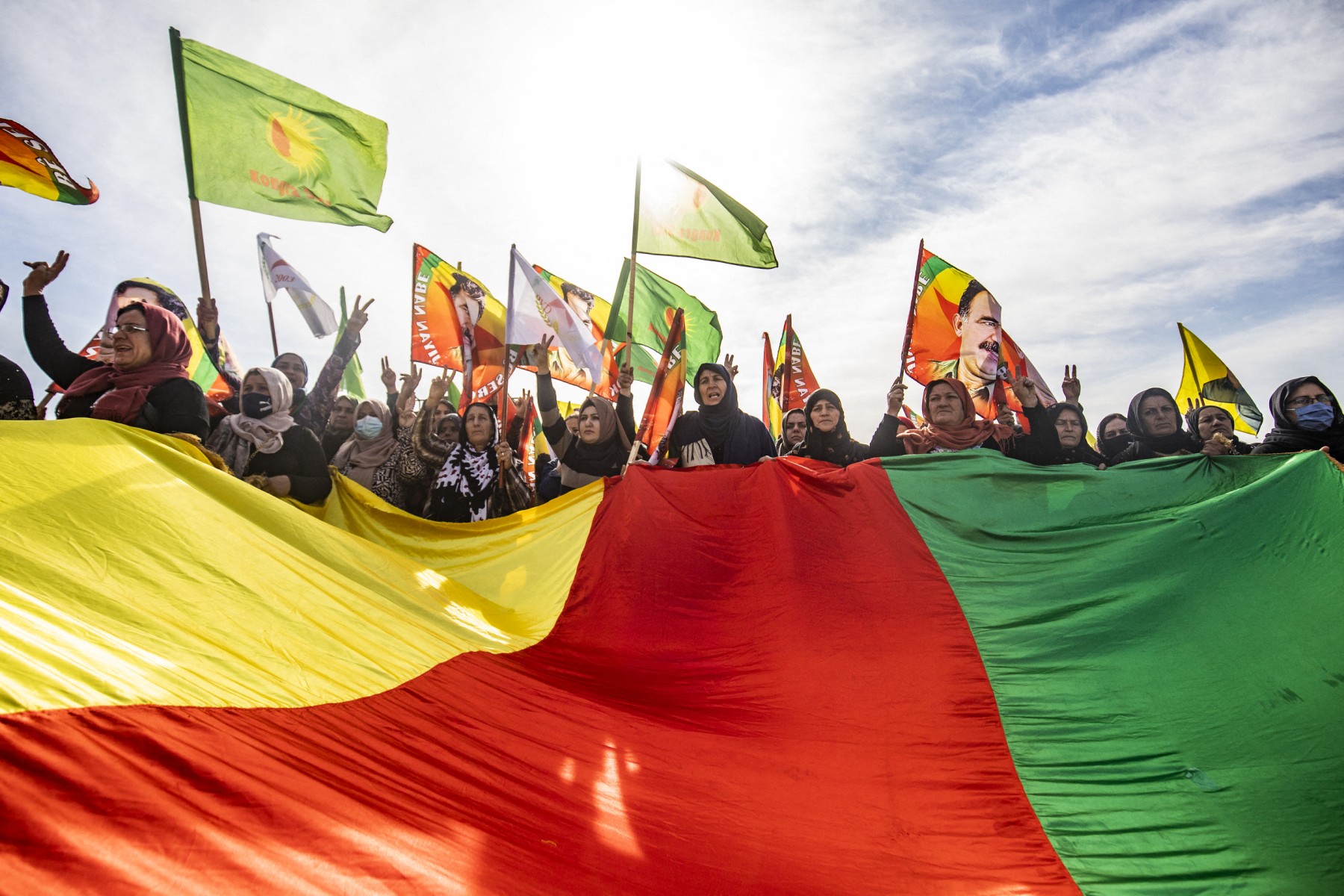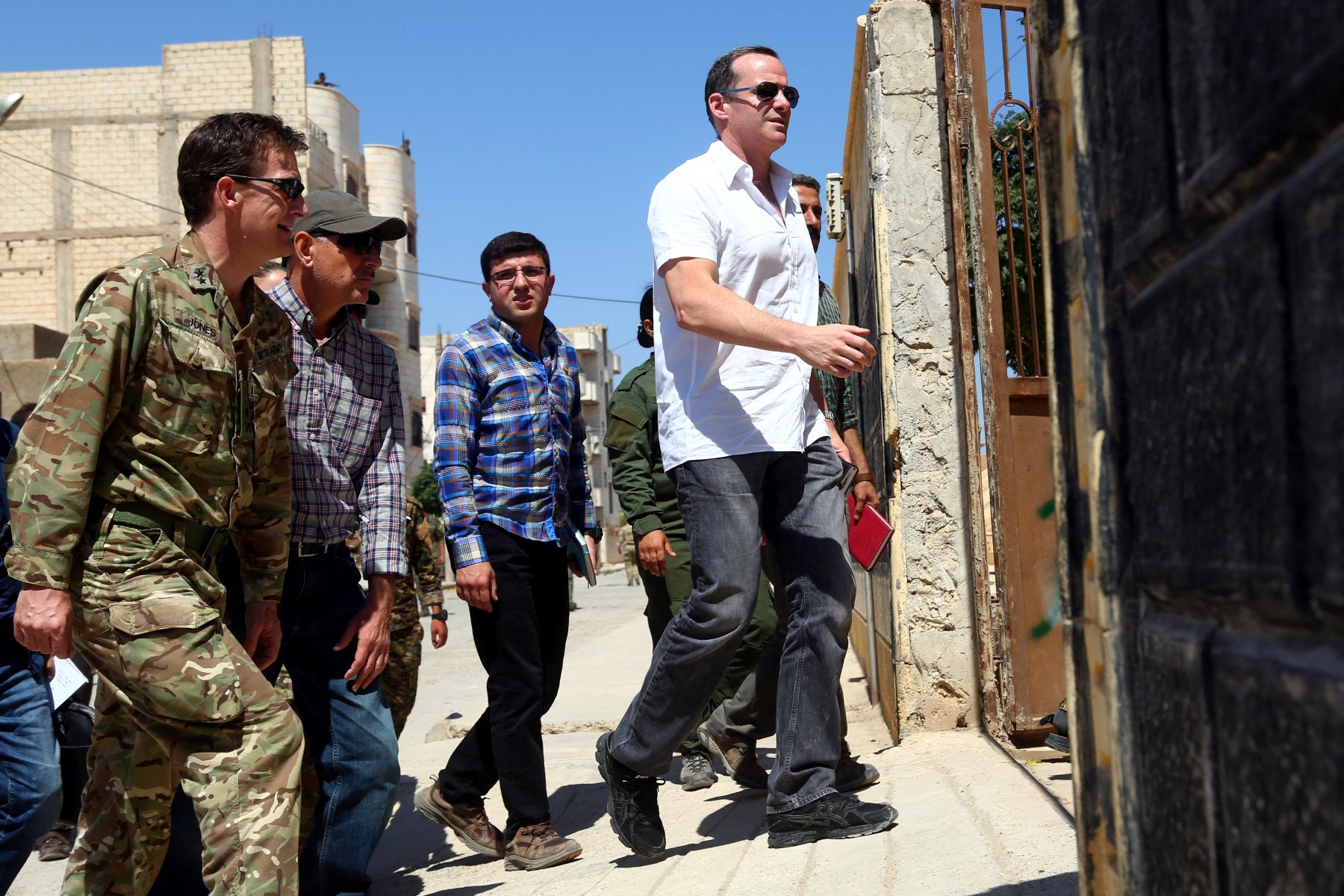Federalism and Democratic Culture in the Middle East

Recently, Tom Barrack, the US ambassador in Ankara and President Trump’s special envoy to Syria, said after a tumultuous meeting between Ahmad Shara, the Syrian president, and Mazlum Abdi, the co-leader of the Syrian Democratic Forces, that federalism is not suited to Syria and the region, and that all efforts should be focused on the consolidation of a unitary state in Syria. The racist overtones of Barrack’s statement notwithstanding, it highlighted the principal preoccupation of US policy in the region, that is, the primacy of security and stability in the construction of a balance of power to ensure the security of Israel as the strong arm of the US hegemony post 7 October 23. Barrack’s statement, however, had wider implications reaching beyond the geographical borders of Syria. We know that there is already a federal system in place in neighbouring Iraq, and almost all non-Persian national-ethnic forces in the secular opposition to the Islamic Republic, including Kurds, Arabs, and the Baluchis, aspire to federalism in future Iran.
Sacrificing justice and equality in a multi-national society for the sake of a forced unity under a jihadi government in a fancy suit and tie is not going to work. Unity by force is a recipe for disaster; the history of the nation-state in multi-national societies testifies to the truth of this argument.
Barrack’s uneducated statement, aside from showing his unawareness of the exigencies of justice and equality in modern multi-national societies, demonstrates his unparalleled ignorance of the conditions leading to the formation of the modern nation-state in theory and history. One expects the special envoy to Syria to have a rudimentary knowledge of the concepts of nation and national identity; to know that the modern nation-state presupposes a nation as the uniform source of political authority and legitimacy, with a sovereign defining the legal unity of the state at home and in the international arena. At present, in Syria, such a sovereign nation simply does not exist; Syrian society is fragmented, lacking political and cultural unity. But it could be created by democratic consent or by the force of arms binding the fragments together by violence. Barracks wants the Kurds, the Druze, and the Alavis to submit to the centralised rule of a jihadi Sunni government with a disastrous track record, past and present. Sacrificing justice and equality in a multi-national society for the sake of a forced unity under a jihadi government in a fancy suit and tie is not going to work. Unity by force is a recipe for disaster; the history of the nation-state in multi-national societies testifies to the truth of this argument.
In societies such as Syria, Iraq, and Iran, multi-national societies in a decentralised political system/structure is not an arbitrary choice, but a political necessity if we happen to care about justice and equality.
In societies such as Syria, Iraq, and Iran, multi-national societies in a decentralised political system/structure is not an arbitrary choice, but a political necessity if we happen to care about justice and equality. A forcibly unified Syria under a repackaged Jihadi government is going to stick out like a sore thumb, militating against the very ethos of the new order, which is to ensure a lasting security for an expansionist Israel under American hegemony. But we should not be surprised if the dynamics of Israeli expansionism and that of American hegemony clash in political-security fields created by the centrifugal tendencies of a multi-national, multi-religious society in Syria. The paradox in the American strategy has already shown its face in Barrack’s preparation for an arranged marriage between Ahmad Shara and Benjamin Netanyahu, ostensibly to safeguard Israel’s northern borders against likely attacks by Hamas and Hizbollah. The strategic objective, however, is to bring Shara to recognise Israel and join the Ibrahim Pact, Trump’s favourite policy stomping ground in the Middle East. Erdogan, for his part, may consent to this, but at a price: Israel’s exit from Syria and active cooperation in the consolidation of Shara’s unitary state. This arrangement, even if Netanyahu and his band of deluded super-Zionists consent, has little chance of succeeding in the long run. Shara and Netanyahu are not just strange bedfellows; their perceptions of the national interest of their respective countries are grounded in ideologies nourished by blood.
What are the implications of Barracks statement for Iraq? Wasn’t Iraq to be the shining example of democratic consent in a multi-national state with diverse religious and cultural traditions? The state of affairs in Iraq at present not only belies that rosy picture of national unity and progress but also stands for everything that committed state centralists and staunch supporters of a unitary nation and a unitary state in Iraq argued for before and after the fall of the Ba’ath regime in 2003. But is this picture a true representation of the political reality in Iraq? The Kurdistan region in Iraq, for all its sins, has tried hard to keep the federal state together. It has fought hard to keep the union against powerful centrifugal tendencies within and outside the state, rescuing it at least twice from disintegration and collapse. This tells a very different story; that, contrary to the centralist opinion, the remedy to the ills of Iraqi politics is not a unitary state with a unitary identity enshrined in the constitution and protected by the force of arms. State violence, however effectively applied, is only a short-term answer to national discord and political disorder. Oppression only breeds discontent. The remedy should be sought elsewhere, in a democratic political culture to underpin the shaky federal political structure. The lack of a generic and vibrant democratic political culture in the centre is the main source of instability preventing the consolidation of the federal system in Iraq. The centralist argument is a result of this lack; it is born of it and is bred by it. The truth of this argument should not be ignored by the American strategists and policy makers for the region, obsessed with security and stability. Order and stability without a democratic culture ensuring popular participation in the political process can be very fragile. A radical change of mind and an overhaul in strategic thinking are necessary to avoid an impending catastrophe in Syria. Briefing Tom Barrack on the complexities of Middle Eastern politics before dispatching him to Damascus could be the first step in this direction, much to the chagrin of his Turkish admirers in Ankara.
Keeping the streets quiet in Arab capitals by supporting repressive regimes and condoning oppression is a bad policy, not only unwise but also costly in the long run. It costs money and human life, rapidly undermining the social fabric
So, contrary to the logic underlying Barrack’s statement, the answer to the alleged unsuitability and likely failure of federalism in multi-national societies is not a more efficient centralised authoritarian state but a democratic political culture, capable of recognising difference and respecting genuine pluralism. This is not stuff for a fairytale; it could/should be created by providing for and sustaining public participation in a fair and non-discriminatory political process. American power in Syria and Iraq should be deployed to help accomplish this task. The first step in this direction is having a clear strategy with unambiguous objectives in Syria. Ambiguities in the US strategy in Syria and Iraq, aside from causing incredible political confusion, have proved costly, as testified by the state of affairs in Rojava and lately in the Alavi and Druze communities. The paradigm of security without democracy has not fared well in the Middle East. Keeping the streets quiet in Arab capitals by supporting repressive regimes and condoning oppression is a bad policy, not only unwise but also costly in the long run. It costs money and human life, rapidly undermining the social fabric.
Lessons for the political parties and organisations representing the Kurds of Rojhelat/Iran are clear: their quest for a federal political system to replace the failed theocratic dictatorship is a fundamentally strategic preoccupation, the realisation of which requires more than political alliances and cooperation with friendly forces in the Iranian opposition. The example of Kurdish administration in Iraq and the ongoing struggle in Rojava are both valuable: federalism without a democratic political culture to underpin it will generate conflict and discord in the Persian centre and discontent and opposition in the non-Persian communities in the country.
Abbas Vali
Prof. Abbas Vali is a Kurdish political theorist from Mahabad, Iran, and one of the foremost scholars on Kurdish identity and nationalism. He studied in Tehran and London, earning his PhD in Historical Sociology from the University of London, and later taught at Swansea University and Boğaziçi University in Istanbul. He was also the founding president of the University of Kurdistan in Hewlêr. His works include Essays on the Origins of Kurdish Nationalism and Kurds and the State in Iran: The Making of Kurdish Identity.



